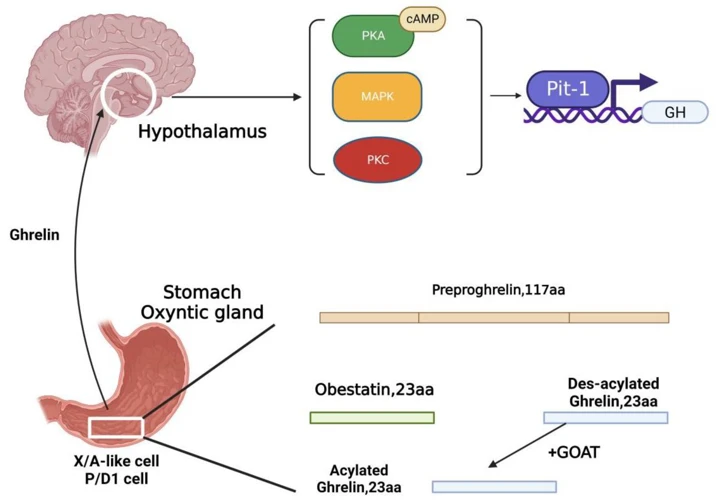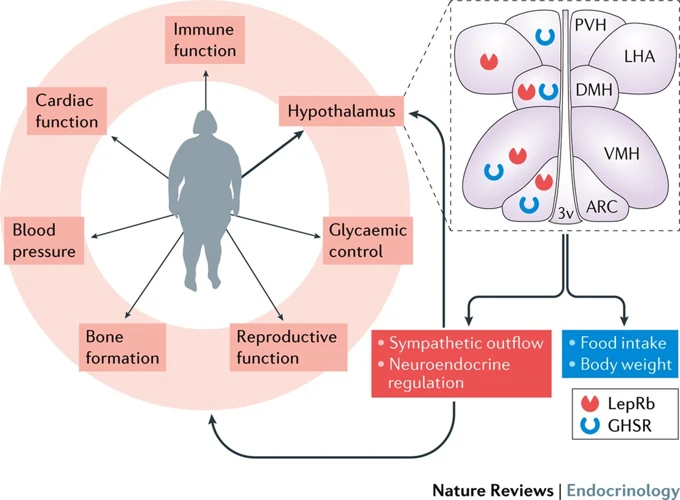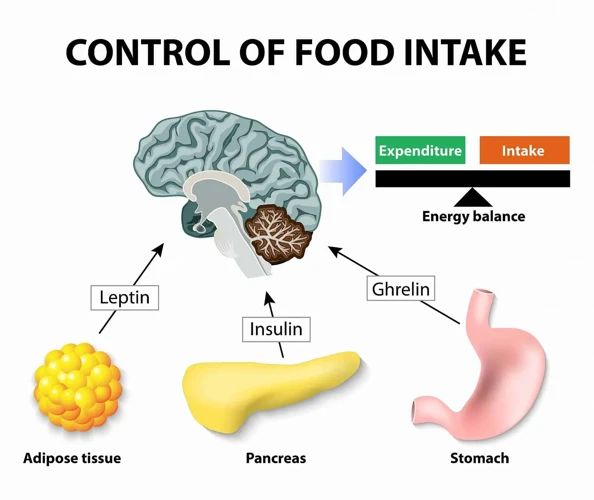The Role of Leptin and Ghrelin in Appetite Regulation

Leptin and ghrelin are two hormones that are crucial in regulating appetite. Leptin, which is produced by adipose tissue, signals to the brain when we have enough energy stores and should stop eating. On the other hand, ghrelin, which is produced in the stomach and other organs, signals to the brain that it’s time to eat. These two hormones work in a delicate balance to keep our hunger and satiety levels in check.
Research has shown that levels of these hormones can be influenced by various factors, including exercise. Exercise has been found to increase levels of leptin, which can help decrease appetite and food intake. This effect appears to be more pronounced in higher-intensity exercises compared to low or moderate-intensity exercise.
In contrast, ghrelin levels tend to decrease during exercise, particularly after a high-intensity workout. This reduction in ghrelin levels can help reduce hunger and cravings, making it easier to stick to a healthy diet.
However, it’s important to note that the relationship between exercise and appetite hormones is complex, and there can be individual variations in how hormones respond to exercise. Additionally, weight loss can also have an impact on these hormones, which we will explore in more detail in the next section.
Understanding the role of leptin and ghrelin in regulating appetite provides important insight into how exercise can be used as a tool for managing hunger and cravings. By harnessing the power of these hormones, individuals can effectively control their food intake and improve their overall health and wellness.
Effects of Exercise on Leptin and Ghrelin

Physical activity is an essential component of a healthy lifestyle, contributing to the maintenance of optimal body weight and overall health. When it comes to appetite regulation, exercise has been shown to have a significant impact on the two vital hormones that control hunger and satiety: leptin and ghrelin. These hormones work in a complex interplay, and changes in their levels can affect food intake and energy balance. In this section, we will explore the effects of exercise on these hormones and how they influence our appetite.
Influence of Exercise Intensity and Duration on Leptin and Ghrelin
Research has shown that exercise can affect the levels of appetite hormones, leptin and ghrelin. The intensity and duration of exercise can influence these changes. Let’s take a closer look at the different effects of exercise on leptin and ghrelin levels.
Exercise Intensity
The intensity of exercise can play a significant role in the changes in leptin and ghrelin levels. High-intensity exercise has been found to suppress ghrelin levels while increasing leptin levels. This can create a feeling of satiety and reduce hunger. On the other hand, low-intensity exercise has been found to have little to no effect on appetite hormones.
To summarize the effects of exercise intensity on appetite hormones, we can use this table:
| Exercise Intensity | Leptin Levels | Ghrelin Levels |
|---|---|---|
| High-intensity | Increase | Decrease |
| Low-intensity | Little to no effect | Little to no effect |
Exercise Duration
The duration of exercise can also influence appetite hormones. Studies have found that longer durations of exercise can lead to greater suppression of ghrelin levels. This means that longer periods of exercise can help reduce hunger and promote satiety.
To summarize the effects of exercise duration on appetite hormones, we can use this table:
| Exercise Duration | Leptin Levels | Ghrelin Levels |
|---|---|---|
| Short duration | Little to no effect | Little to no effect |
| Long duration | Little to no effect or increase | Decrease |
Both exercise intensity and duration can impact appetite hormones, and high-intensity and longer duration exercise have been found to be the most effective in suppressing ghrelin levels and increasing leptin levels. However, it is important to remember that these changes are temporary, and maintaining a regular exercise routine is necessary for long-term appetite regulation.
Impact of Weight Loss on Leptin and Ghrelin
When it comes to weight loss, leptin and ghrelin play a crucial role in increasing or decreasing one’s appetite. With weight loss, the levels of these hormones change, affecting an individual’s food intake and body weight. Here are some ways that weight loss affects leptin and ghrelin levels:
- Decrease in leptin levels: As an individual loses weight, the amount of fat tissue in the body decreases, which leads to a lower production of leptin. Leptin is responsible for signaling to the brain that the body has had enough food, and a decrease in leptin levels could lead to increased hunger and food intake.
- Increase in ghrelin levels: In addition to a decrease in leptin levels, weight loss can also lead to an increase in ghrelin levels. Ghrelin is responsible for signaling hunger to the brain, and an increase in ghrelin levels could lead to increased food intake and cravings.
- Dysregulation of appetite hormones: Weight loss can also cause dysregulation in the production and signaling of appetite hormones, which can further affect an individual’s food intake and body weight.
It is important to note that these changes in hormone levels may not apply to all individuals and may vary based on one’s genetics and previous weight history. However, understanding the impact of weight loss on leptin and ghrelin levels can help individuals make more informed choices about their diet and exercise routine when trying to lose weight.
Managing Hunger and Cravings through Exercise
For many people, managing hunger and cravings can be a constant battle, making it difficult to achieve weight loss or maintain a healthy diet. However, exercise has been shown to have a powerful impact on appetite regulation by influencing the hormones responsible for hunger and fullness. By strategically incorporating exercise into your routine, you may be able to better manage your appetite and cravings and improve your overall health. In this section, we will explore the recommended types and duration of exercise for appetite control, post-workout nutrition and hydration for appetite management, and strategies for combining exercise with other appetite-regulating techniques.
Recommended Types and Duration of Exercise for Appetite Control
When it comes to appetite control, the type and duration of exercise play an important role. Not all exercises are created equal, and some may be more effective than others in regulating appetite hormones. Here are some recommended types and durations of exercises for appetite control:
| Exercise Type | Duration | Benefits |
|---|---|---|
| Aerobic Exercise | 30-60 minutes | May decrease ghrelin levels and increase leptin levels, leading to reduced hunger and increased satiety. |
| Resistance Exercise | 30-60 minutes, 2-3 times per week | May increase lean body mass and metabolic rate, leading to increased energy expenditure and decreased hunger. |
| High-Intensity Interval Training (HIIT) | 20-30 minutes | May be more effective than steady-state aerobic exercise in decreasing ghrelin levels and increasing leptin levels, leading to reduced hunger and increased satiety. |
In general, a combination of aerobic and resistance exercises is recommended for overall health and appetite control. It is important to note that the duration of exercise may vary depending on an individual’s fitness level and goals. It is also important to mix up the exercise routine to prevent boredom and to challenge the body in different ways.
Additionally, it is important to stay hydrated during and after exercise, as dehydration can lead to increased hunger and cravings. Eating a balanced meal containing protein and fiber post-workout can also help regulate appetite and prevent overeating later in the day.
Post-Workout Nutrition and Hydration for Appetite Management
When it comes to managing appetite after exercise, proper nutrition and hydration play a critical role in maintaining an optimal balance of leptin and ghrelin hormones. Here are some tips for post-workout nutrition and hydration that can help manage appetite:
- Hydration: Drinking water before, during, and after exercise can help keep you hydrated and reduce feelings of hunger. Dehydration can cause an increase in ghrelin levels, leading to a boost in appetite.
- Protein: Consuming protein-rich foods after exercise can help suppress ghrelin and increase leptin levels, which can help control appetite. Good sources of protein include lean meats, fish, eggs, and legumes.
- Complex Carbohydrates: Adding complex carbohydrates to your post-workout meal can help sustain energy levels and keep you feeling full for longer. Foods such as sweet potatoes, quinoa, and brown rice are good sources of complex carbohydrates.
- Fiber: Foods high in fiber can also help manage appetite by promoting feelings of fullness. Incorporating foods such as fruits, vegetables, and whole grains can help keep you satisfied after exercise.
- Avoid Overeating: While it may be tempting to indulge in unhealthy treats after exercise, overeating can negate the benefits of your workout. Instead, opt for healthier snacks such as fresh fruit or a protein smoothie to help manage hunger.
By following these post-workout nutrition and hydration tips, you can help manage your appetite and maintain a healthy balance of leptin and ghrelin hormones.
Combining Exercise with other Appetite-Regulating Strategies
If you’re struggling to manage your appetite, combining exercise with other appetite-regulating strategies might be beneficial for you. Here are some other methods you can incorporate into your daily routine:
- Proper Sleep: Getting enough quality sleep is vital to regulating appetite hormones. Lack of sleep can lead to an increase in ghrelin and a decrease in leptin, ultimately leading to increased hunger and a higher likelihood of overeating.
- Mindful Eating: Mindful eating can help you better tune into your body’s hunger and fullness cues. Taking the time to enjoy and savor each bite of food can help increase feelings of satiety and prevent overeating.
- Stress Management: Chronic stress can cause an increase in ghrelin and a decrease in leptin, leading to increased hunger and cravings. Incorporating stress-management techniques such as meditation, deep breathing, or yoga can help regulate these appetite hormones.
- Healthy Diet: Consuming a healthy and balanced diet can help regulate appetite hormones and lead to satiety. Foods high in protein and fiber can help increase feelings of fullness and prevent overeating.
Incorporating these strategies into your exercise routine can help you better manage your appetite and cravings. By paying attention to your body’s hunger cues and utilizing these methods, you can improve your overall health and wellbeing.
Conclusion
In conclusion, the effects of exercise on appetite hormones like leptin and ghrelin are complex and influenced by various factors such as exercise intensity, duration, and weight loss. However, it is clear that exercise can have a positive impact on appetite regulation and weight management.
Regular exercise can lead to a decrease in ghrelin levels, which can reduce feelings of hunger and cravings. Moreover, the increase in leptin levels can enhance feelings of fullness and satiety, leading to reduced calorie intake and potential weight loss.
However, it is essential to note that exercise alone may not be enough to achieve significant weight loss or appetite control. Combining regular exercise with a healthy diet and other appetite-regulating strategies such as mindful eating and stress management can enhance the effects of exercise on appetite regulation.
Moreover, post-workout nutrition and hydration play a vital role in appetite management. Consuming a balanced meal or snack with adequate protein and fiber after exercise can help maintain feelings of fullness and reduce the likelihood of overeating later in the day.
In summary, exercise can be a valuable tool for managing hunger and cravings and enhancing weight management. Consistency and variety in exercise routine, combined with other healthy lifestyle strategies, can result in long-term weight loss success and improved overall health.
Frequently Asked Questions
What is the role of ghrelin in appetite regulation?
Ghrelin is a hormone produced in the stomach that stimulates appetite and food intake.
What is the role of leptin in appetite regulation?
Leptin is a hormone produced in fat cells that regulates energy balance and suppresses appetite.
How does exercise affect ghrelin levels?
Exercise can decrease ghrelin levels, leading to a reduction in appetite and food intake.
How does exercise affect leptin levels?
Exercise can increase leptin levels, which can help regulate energy balance and appetite control.
Can exercise help with weight loss by affecting appetite hormones?
Yes, exercise can play a role in weight loss by regulating appetite hormones and reducing food intake.
Does exercise intensity or duration have a greater impact on appetite hormones?
Both exercise intensity and duration can affect appetite hormones, but there is evidence to suggest that higher intensity exercise may have a greater effect on suppressing appetite.
Can weight loss affect leptin and ghrelin levels?
Weight loss can decrease leptin levels and increase ghrelin levels, which can lead to an increase in appetite and food intake.
What types of exercise are best for appetite control?
Research suggests that high-intensity interval training (HIIT) and resistance training may be more effective for suppressing appetite compared to low-intensity steady state (LISS) cardio.
Is it important to properly refuel and hydrate after exercise for appetite control?
Yes, consuming a balanced meal with protein and carbohydrates and maintaining proper hydration can help regulate appetite and prevent overeating post-exercise.
Are there any other appetite-regulating strategies that can be combined with exercise?
Yes, practicing mindfulness and stress-reducing techniques, consuming a balanced and nutritious diet, and getting adequate sleep can all help regulate appetite and complement the effects of exercise on appetite control.







